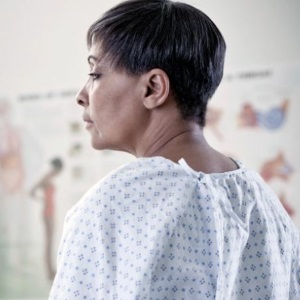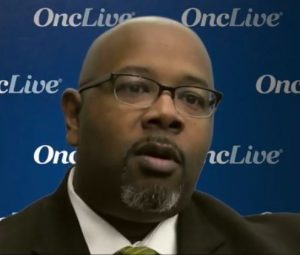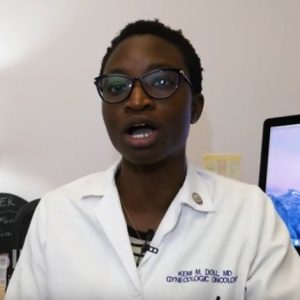
Is active surveillance a “PSA prison” for Black men?
Should Black men ever be candidates for active surveillance? “If Black men have more aggressive cancer, then why would you treat them less aggressively? If they’re not like white men, why would you treat them like whites?” asks Willie Underwood (above), a urologist in Buffalo, New York, who opted for a radical prostatectomy to treat

Biden administration must increase access to quality prostate cancer health care for Black men
The COVID-19 pandemic has left millions of Americans unemployed and without health insurance. The negative socio-economic and health repercussions of the pandemic are disproportionately affecting Black Americans, which will compound the current impact of prostate cancer on Black men, says Thomas Farrington (above), president and founder of the Prostate Health Education Network and a prostate

Funmi Olopade, MD
“Chicago is full of rich Black women, middle class Black women who are police officers, teachers, who are not living in poverty. And so, the more I see the variety of Black women who are coming in with triple-negative breast cancer, the more I refuse to accept the fact that it was all poverty and

Karen Peterson
“I’m your everyday woman who is a self-taught advocate, an underdog…I empowered myself through education. I am a rebel who refused to accept substandard care…I’m a prime example of why cancer research works—I am alive because of it…My goal is to inspire and empower others to take charge of their medical narratives and to give

We can’t ever go to the doctor with our guard down
The toxic combination of sexism and racism is visible at every step of a Black woman’s experience as she develops breast cancer, from the preventive care she is less likely to receive to the treatments that are less available to her. Black women are at higher risk for a particularly aggressive type of “triple-negative” breast

Summer Dewdney
“I see these young women who are in their 30s or 40s with these horrible cervical cancers — advanced stage 3, 4. These are diseases you should be seeing in Third World countries or where they don’t have health care,” said Summer Dewdney, a gynecologic oncologist at Rush University Medical Center in Chicago. See “No

Kelvin Moses
“I encourage men to be vigilant about getting screened for prostate cancer earlier, particularly if they have a family history. So many men who come into my clinic and tell me their dad died of bone cancer; it is more likely prostate cancer that spread and they just didn’t know it,” says Dr. Kelvin A.

Kemi Doll
“This is actually a larger difference in terms of a racial disparity with endometrial cancer than we see in breast cancer and colon cancer, so I really wanted there to be a visible community of black women who have been diagnosed with this disease to show they can survive and thrive,” said Kemi Doll, founder

Preventing Cervical Cancer in Black Women in America
An estimated 700 African American women still die of cervical cancer each year. The three main reasons are: later stage at diagnosis, less aggressive treatment, and more barriers to care once diagnosed. Lack of knowledge about cervical cancer may be the largest barrier to screening and treatment of cervical cancer in African American women. One
